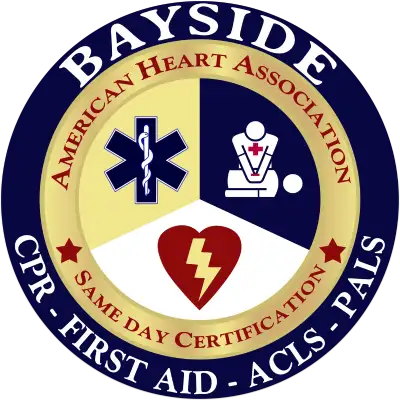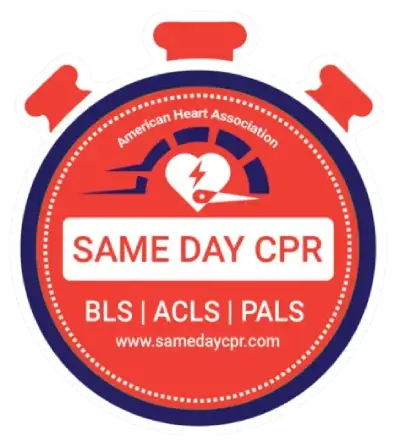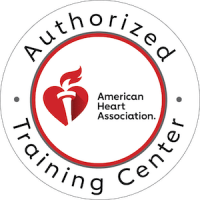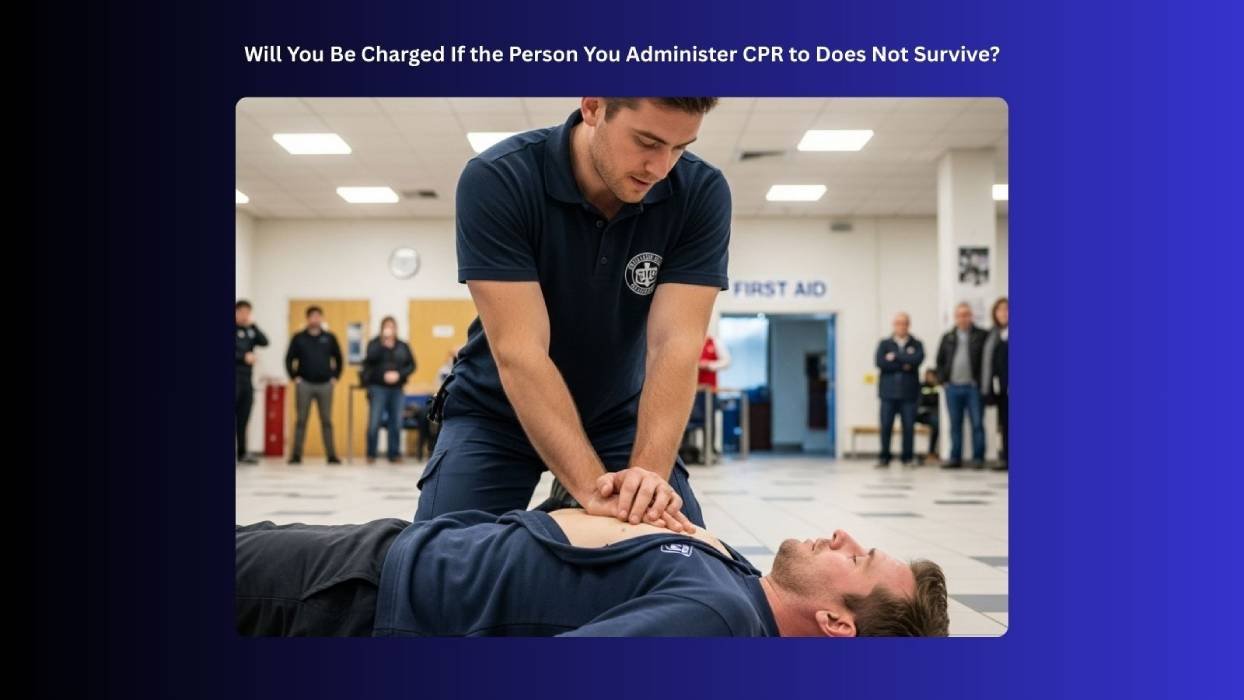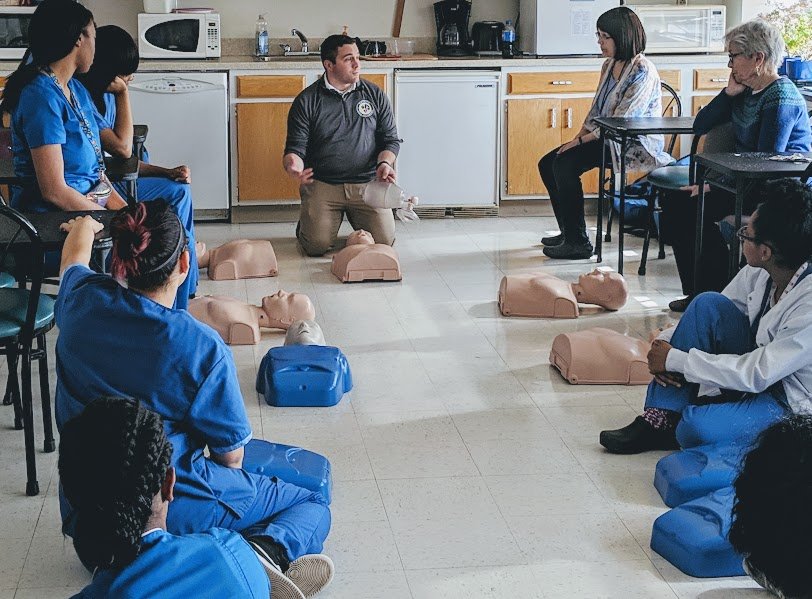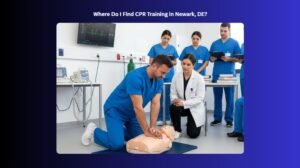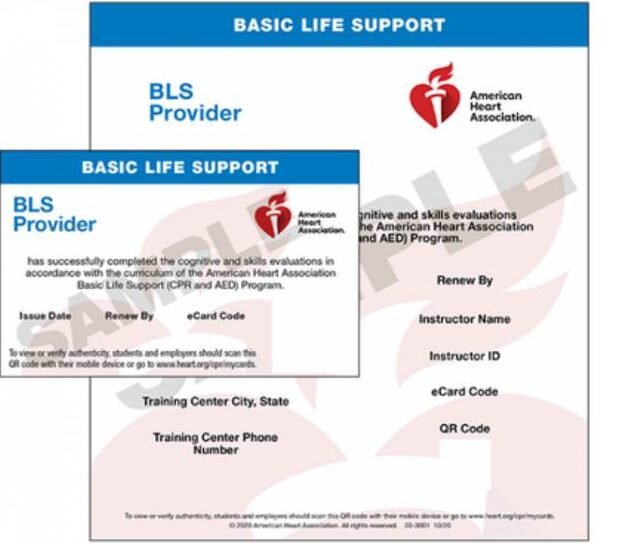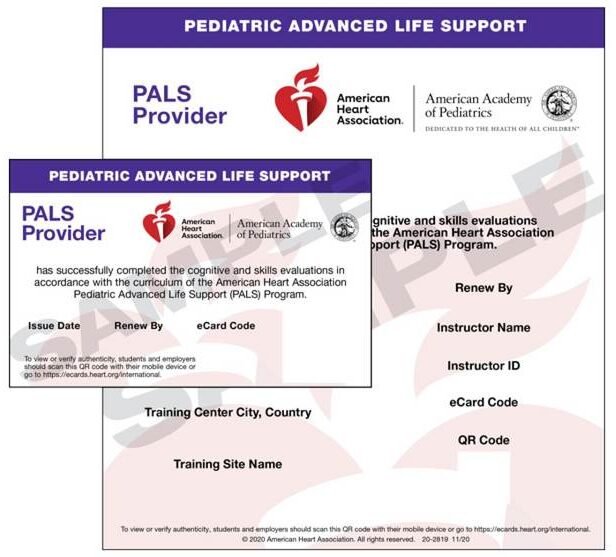If you ever find yourself performing CPR and the person doesn’t survive, you might worry about being charged or blamed. People often worry about legal trouble after a rescue, whether they are a bystander or a trained professional. In reality, most places encourage helping others in an emergency and protect good-faith rescuers. This outline will explore the big questions about liability and immunity, the differences in scenarios for lay rescuers and healthcare workers, and practical tips you can use to act confidently and responsibly in the moment.
Understanding CPR Survival Rates
CPR keeps oxygenated blood flowing to the brain and vital organs when the heart stops. It does not restart the heart but buys time until advanced help arrives. Survival rates vary by situation. Out-of-hospital cardiac arrest survival is about 10%, while in-hospital survival is closer to 20-25%. Survival improves when CPR is started quickly, especially within the first few minutes. Defibrillation greatly increases survival for shockable rhythms. High-quality compressions, deep, fast, and with minimal pauses, are essential. Immediate bystander CPR can raise survival to 30-40% in some communities. Without CPR, survival from sudden cardiac arrest is almost zero. CPR does not guarantee survival, but it significantly improves the chances. Acting quickly can make the difference between life and death.
The Role of CPR in Emergencies
- CPR gives the heart a chance to keep pumping when it stops. Acting fast can make the difference between life and death.
- When the heart isn’t beating, the brain and body still need oxygen. CPR helps deliver air to the body until help arrives.
- Emergency responders need time to reach the scene. CPR helps stabilize the person until trained help takes over.
- Lack of oxygen can harm the brain very quickly. Performing CPR reduces the risk of long-term injury.
- Anyone can learn CPR and use it in emergencies. Knowing how to act builds confidence and can save someone’s life.
Good Samaritan Laws
Good Samaritan Laws exist to protect people who step in to help during an emergency. They’re designed to encourage action, not punish well-intentioned helpers.
In general, you’re protected under these laws if you:
- Act in good faith. You genuinely try to help, not cause harm.
- Provide care voluntarily. You’re not getting paid for your assistance.
- Avoid gross negligence. You don’t act recklessly or dangerously.
Keep in mind that the details can vary depending on your state or country, but the main goal is the same: to protect rescuers who are trying to save a life.
Can You Be Charged if the Person Does Not Survive?
The short answer is: rarely. If you perform CPR in good faith, the law usually protects you, even if the person doesn’t survive.
Legal trouble might only arise in rare situations, such as:
- If your actions were reckless or intentionally harmful.
- If you tried to perform CPR while under the influence of drugs or alcohol.
In reality, lawsuits against people who try to save lives are extremely rare. The law is designed to support rescuers, not punish them, so stepping in is almost always the right choice.
Special Situations to Consider
Every emergency is a little different, and some situations need extra attention. Understanding these special cases can help you act confidently and safely.
- Consent: If a person is unresponsive, the law assumes they would want help. That’s called implied consent.
- Children: Parents’ permission is assumed in life-threatening emergencies.
- DNR orders: If you start CPR and later find out the person had a Do Not Resuscitate order, you won’t be punished for acting without knowing.
- Healthcare Professionals: Different standards can apply while on duty, but Good Samaritan protections usually cover off-duty help.
Why Fear of Legal Action Shouldn’t Stop You from Acting
It’s normal to worry about getting in trouble when helping someone in an emergency. The truth is, acting quickly can save a life, and the law is usually on your side.
1. The Law Protects You
Good Samaritan Laws exist to make sure people who help in emergencies are safe from lawsuits. If you act in good faith and follow basic CPR guidelines, the law has your back. Knowing this can give you confidence to step in without hesitation.
2. Every Second Counts
When someone’s heart stops, every minute without CPR lowers their chance of survival. Acting quickly can make a huge difference. Doing nothing out of fear could mean missing the only opportunity to save a life.
3. Most Rescues Go Without Legal Trouble
Lawsuits against people performing CPR are extremely rare. Courts understand that CPR is a life-saving effort, not a guarantee. The reality is, helping someone rarely leads to legal problems.
4. You Can Make a Real Impact
Even if survival isn’t guaranteed, CPR often buys critical time until professional help arrives. Your actions could be the reason someone lives to see their family again. That impact is worth overcoming fear.
5. Confidence Comes with Preparation
Learning CPR and practicing regularly builds skills and reduces uncertainty. The more prepared you feel, the easier it is to act calmly in an emergency. Training not only protects lives but also helps you feel secure about your choices.
Practical Tips for Protecting Yourself Legally and Ethically
Knowing how to act safely in an emergency can protect both you and the person in need. These tips help you give CPR with confidence and care.
1. Call 911 Immediately
The first thing you should do in any emergency is call 911. Getting professional help on the way as fast as possible gives the person the best chance of survival and keeps you guided by experts from the start.
2. Follow Standard CPR Guidelines
Stick to the basic CPR steps: push hard, push fast, and let the chest fully rise between compressions. Following these proven techniques keeps your actions safe and effective while giving the person the best chance to survive.
3. Use AEDs when Available
If there is an AED (automated external defibrillator) nearby, turn it on and follow the voice prompts. AEDs are designed to be easy to use, and they can greatly increase the chance of restarting the heart.
4. Avoid Unnecessary or Reckless Actions
Do not try complicated or untrained methods. Focus on basic CPR and the tools you have. Acting carefully protects the person and also keeps you legally safe.
5. Get Certified or Refresh Your CPR Training
Regular training builds confidence and keeps your skills sharp. Knowing what to do in an emergency helps you act quickly, safely, and with less hesitation, which can make a real difference in someone’s survival.
Performing CPR Matter Even Victim Dies
In summary, it’s important to remember that stepping in to help someone in an emergency is almost always the right choice. Even if the person doesn’t survive, the law usually protects you when you act in good faith and follow basic CPR steps. Your actions can give someone a real chance at life. Being prepared, knowing the guidelines, and staying calm can make a huge difference, not just for the person in need but also for your confidence as a rescuer. Helping is never wasted, and your effort could be the moment that changes everything.
Be prepared to act in an emergency. Enroll in CPR with Bayside CPR by completing a brief online class at your convenience. Then, attend a 30-minute hands-on skills check at one of our 60+ locations. After successfully finishing both components, you will receive your official American Heart Association CPR provider card. Walk out the same day with your provider card and the confidence to step in during any emergency. We also offer other courses, including ACLS, BLS, and PALS.
